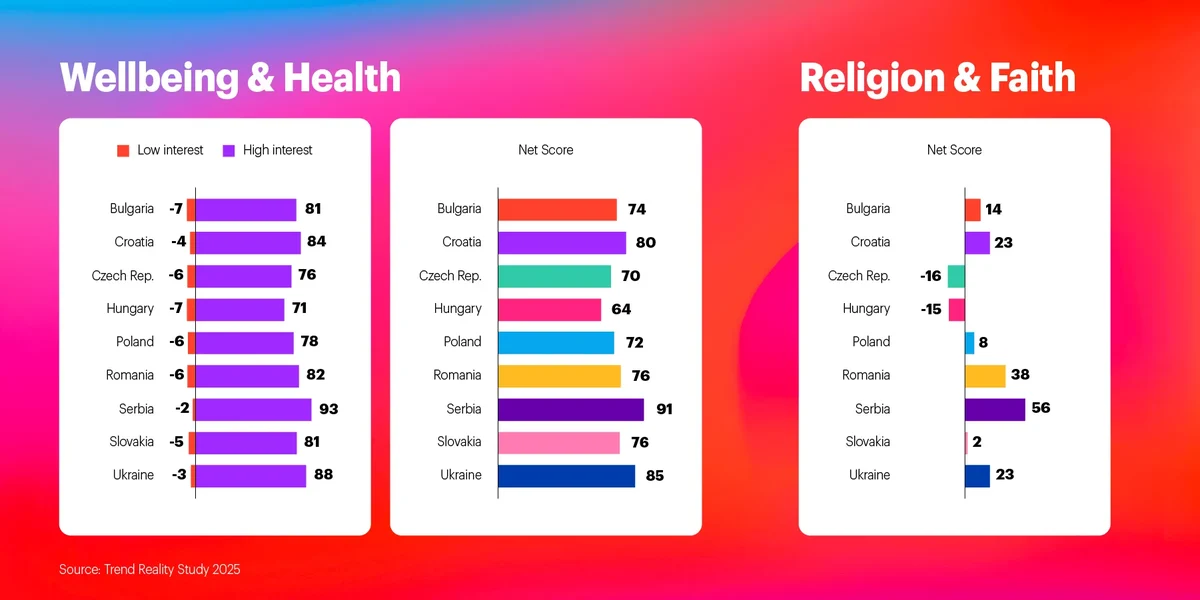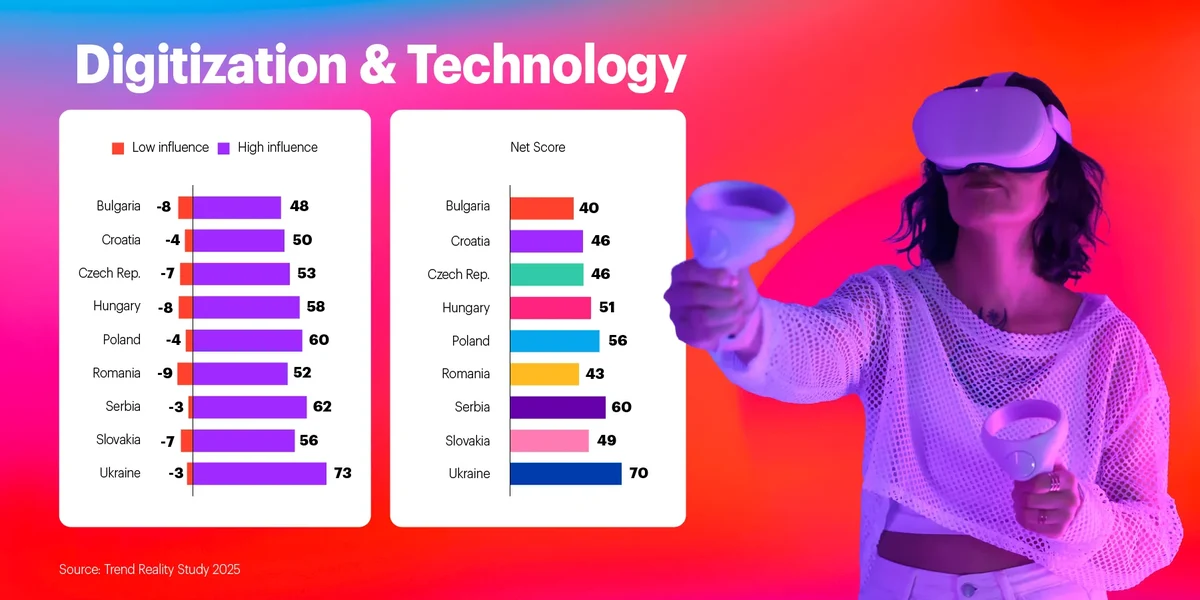Health over politics. Digitalization over tradition. The Trend Reality study explores what really matters to CEE consumers — and how their perspective on the world is evolving.
Our daily lives are shaped by a wide range of topics and influences. Our worldview is anchored in our needs and motives, while constantly shaped by the external environment. In our recent Trend Reality study, we explored, among other things, the worldview of European consumers — with Central and Eastern Europe (CEE) being no exception.
What is the Worldview?
Each letter of “WORLDVIEW” represents a distinct area of consumer interest that shapes how we understand and perceive the world — and how these areas affect our lives. Beyond identifying key interests, we also examined which of them have the greatest impact today and where consumers expect the most significant influence in the coming years.
What interests consumers in CEE?
It may not come as a surprise that health and wellbeing stand out as the top area of interest among CEE consumers. This topic clearly leads across all countries, where interest significantly outweighs disinterest — particularly in Serbia, followed by Ukraine and Croatia.
Religion, belief, and spirituality show the lowest overall net interest in most countries. In the Czech Republic and Hungary, more people report disinterest than interest in this area.
The economy ranks as the second-highest area of interest across CEE — understandably so, as it directly affects consumers’ financial situations and employment.
Overall, Serbians and Ukrainians demonstrate higher levels of interest across all topics, while Hungarians and Czechs tend to express lower interest in general.

What impacts our lives in CEE?
One of the key areas of interest — the economy — is perceived rather negatively across CEE. In all countries, the state of the economy is viewed more negatively than positively. This aligns with the similarly negative perception of political affairs and their impact on daily life. Both are viewed most critically in Hungary, Slovakia, and Serbia, while Romania perceives them least negatively.

What will influence our lives in the near future?
The message is clear: consumers across CEE trust in digitalization and new technologies to bring positive change to their lives. This sentiment is shared across all markets, including Hungary. However, Hungarians place slightly more hope in the economy. Still, the overall balance in Hungary remains on the positive side — more than half expect digitalization and new technologies to improve their lives.

There is no doubt that digitalization, innovation, and technologies such as AI will transform our lives — and at a much faster pace than we have been used to. The adoption of AI, including Generative AI, appears to be happening ten times faster than the adoption of the internet itself.
The technological boom is just one of five key “galaxies of trends.” Curious to explore the impact and importance of the other trends — and how they connect to our needs and motives? Your ultimate European guidebook, Trend Reality, including the full Worldview analysis, is ready to be explored.
Order your copy today to gain a detailed perspective on the countries that interest you — including those in the CEE region.
